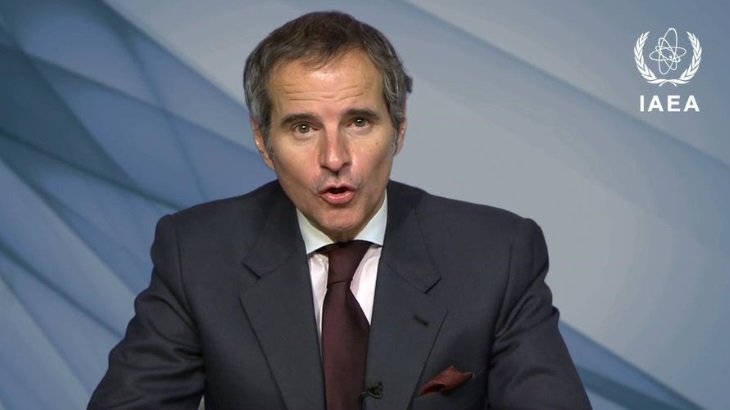The IAEA’s mandate to promote the peaceful, safe and secure use of nuclear technologies worldwide has broad implications for people and the environment. The new initiative provides an opportunity for companies to support the IAEA in transferring nuclear science and technology to countries to improve the health and prosperity of millions of people around the world.
In his address to the Nuclear Energy Assembly, Grossi highlighted the lifesaving applications of nuclear energy.
"We work to bring radiotherapy to communities that do not have it. … We help countries use nuclear techniques to boost their crops by making them hardier in the face of drought… We are also working hard to address two of the world’s biggest challenges: the plastic pollution in our oceans and the frequent outbreaks of zoonotic diseases," he said in his video statement to the conference.
"Across the world, corporate and government leaders, investors, consumers and voters are deciding how we will re-emerge from the global pandemic on the path to net zero emissions," he said. "The nuclear industry has a role to play.”
The IAEA’s work is made possible with the support of its 173 Member States and increasingly with the support of the private sector. Funds from Nuclear Saves Partnerships will enable the Vienna-based organisation to accelerate the peaceful uses of nuclear energy for cancer diagnosis and treatment, the prevention and control of zoonotic diseases, as well as climate change adaptation, mitigation and transition to clean energy, Grossi said.
"A lab using nuclear techniques to trace microplastics or to spot the next zoonotic disease may seem far removed from a traditional nuclear power plant or an SMR. However, I believe that expanding the benefit of nuclear science, especially to less advantaged communities, is not only the right thing to do, but that it also helps build trust in the sector. This trust is a prerequisite for nuclear power meeting its potential in helping mitigate climate change," he said.
US-based nuclear power company Westinghouse Electric Company has become the first Nuclear Saves partner, he said, and the NEI has agreed to become a Nuclear Saves advocate.
Funds from Westinghouse will be directed toward climate change mitigation and clean energy projects related to the integration of nuclear and renewable energy systems, as well as the development of climate smart agricultural practices to mitigate greenhouse gases.
"I invite those gathered today to consider joining us in advancing the beneficial uses of nuclear science and technology across the world," Grossi said. "I believe that working together on multiple fronts will benefit us all."
In a separate statement, Westinghouse President and CEO Patrick Fragman said: "This partnership is another demonstration of our commitment to the fight against climate change, and an important step in deepening the relationship between Westinghouse and the IAEA. We are proud to serve as a model for future public-private partnerships as the world joins together in seeking to combat the effects of climate change."
For more information, write to: partnerships@iaea.org.





_91467.jpg)
_47120.jpg)
_16439.jpg)






